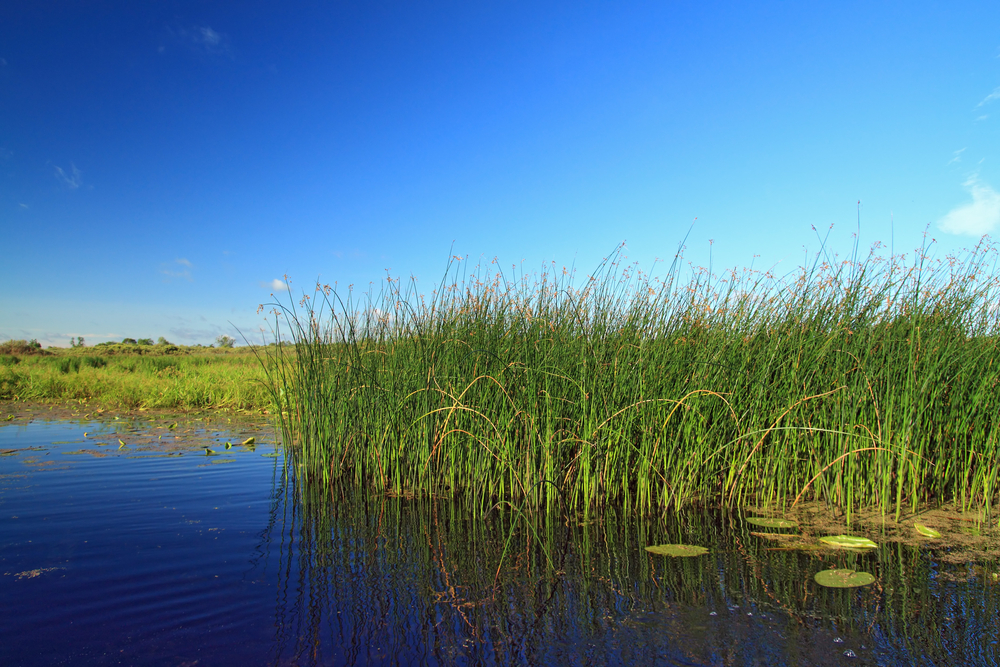In southern Ontario, approximately 85 per cent of wetlands have been drained to make way for suburban sprawl, aggregate extraction and agriculture.
The value of Ontario’s wetlands
These wetlands provide important habitat for fish and endangered species and help keep our waterways and lakes clean. Wetlands need protection from enormous development pressure. Ontario’s Conservation Authorities are responsible for regulating development and protecting wetlands, valley lands, floodplains and shorelines. They are supposed to apply forceful protections to ensure that the ecological health of Ontario’s wetlands are restored and maintained.
Are Conservation Authorities doing enough?
In at least one case, Conservation Authorities are not living up to that responsibility. That is why we are representing the South Lake Simcoe Naturalist’s Club in the Lake Simcoe Region Conservation Authority’s (LSRCA) review of wetland development policies. Currently, the LSRCA has a policy to automatically approve subdivision developments in Provincially Significant Wetlands.
Protecting Lake Simcoe & Provincially Significant Wetlands
South Lake Simcoe Naturalist’s Club is a group of local residents and naturalists dedicated to the study, interpretation, conservation and preservation of our natural environment, with a focus on Lake Simcoe. A fully federated member club of Ontario Nature, the group wants a healthy lake where wetlands — especially Provincially Significant Wetlands and headwaters — are fully protected.
Due to public outcry over the old policy, the LSRCA agreed to amend its policies. The South Lake Simcoe Naturalists were expecting strong wetland protections in the new policy. Instead, the Conservation Authority has proposed a revision to its policy that would continue to allow the destruction of Provincially Significant Wetlands for development, without fully assessing the protection of ecological health or the watershed.
What’s the problem with the new policy?
The new policy, if approved, would be unlawful. Under the Conservation Authorities Act, Conservation Authorities are legally obligated to ensure that the ecosystem is protected before approving development. We feel that this new policy, if approved, would set a dangerous precedent for the other Conservation Authorities in Ontario to streamline their processes and fail to protect wetlands in accordance with those regulations.
Conservation Authorities have been starved for resources for many years and face large numbers of environmentally and technically complex applications every year. As a result, these authorities are always playing catch-up and trying to find ways to make their job simpler. Moreover, many Conservation Authorities have boards made up of municipal councillors who are reluctant to make decisions that conflict with those already made by local planning authorities. Conservation Authority permits are also not regulated under the notice and comment provisions in the Environmental Bill of Rights, so Conservation Authorities permits are issued out of public view and without a right for public appeal. That makes it all the more important that the internal development policies of the Conservation Authorities have teeth.
What is Ecojustice doing to help?
Ecojustice is providing free legal advice and representation to the South Lake Simcoe Naturalists in order to try and push back against the forces that are pressuring LSRCA to approve developments without a detailed review of environmental impacts. We submitted comments in September 2014 in support of a stronger policy. As a result of our comments, the LSRCA announced in October 2014 that it is doing a legal review of its policy. We are confident that this review will result in the LSRCA taking a different approach. We hope that this example will encourage other Conservation Authorities to prepare and implement robust policies.
We are not alone. Other groups, like the North Gwillimbury Forest Alliance in Georgina, Ont., and the Rescue Lake Simcoe Coalition are pushing for better wetlands policy in the Lake Simcoe Watershed. Their goal, like our client’s, is to save important wetlands like the North Gwillimbury Forest from planned housing and other developments.


